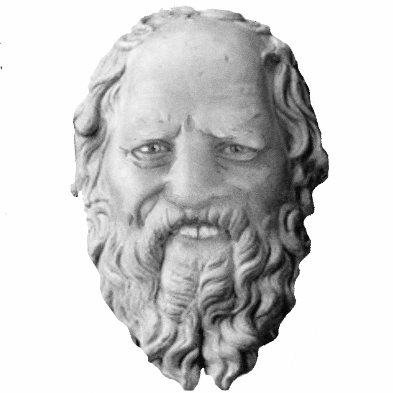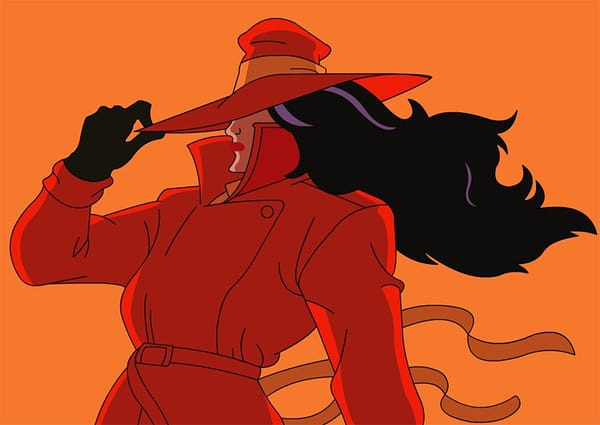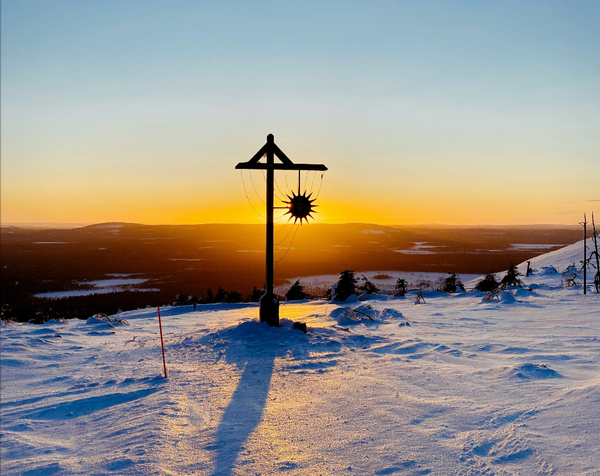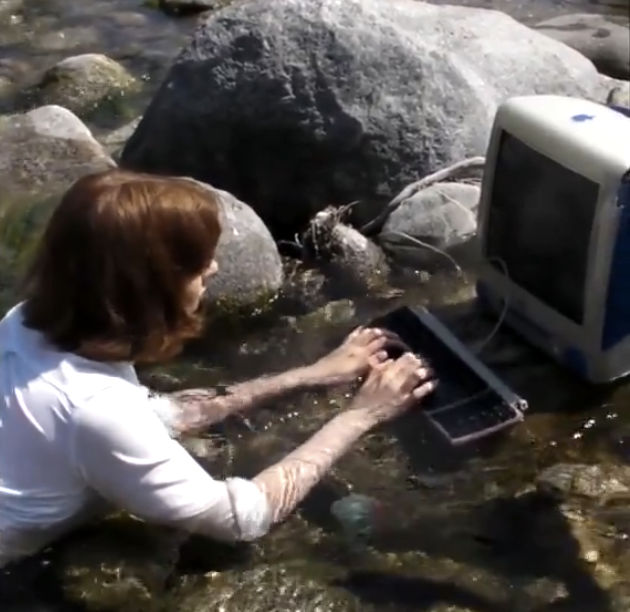Living the Questions
How do you know where you belong?

I’m already late when the bus decides to be late, too. Like when you text a friend that you’re still on the way and they say, “same!!” But this bus doesn’t know me. I’m not a local. I don’t know the town I’m passing through or its rhythms or whether another bus will even arrive. What I know is that I’m in a hurry, not just in a catch-the-bus way but in an existential hurry. I’m in a rush to get to the life I’m supposed to be living. To find a home, friends, career, family. And I know, I know, rushing is not a great mindset, but I can’t help it. I’m trying to get somewhere I’ve never been, and today that place is a continuing education school where I’m supposed to take the Einbürgerungstest. The citizenship test. My chance, maybe, to prove that I belong.
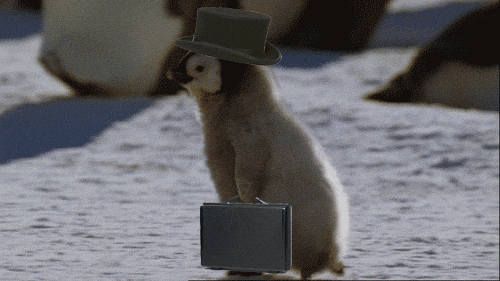
I signed up for the test eight months ago, in March. Back then I was still employed, still “circling back” and “raising ideas” at The New York Times while ignoring a tiny voice that said, Please! Try something new! I wasn’t ready for something new. I’ll change later! I told the voice, as if that’s ever an option. And maybe I knew change was coming. Maybe that’s why I signed up for the test, even though the odds weren’t in my favor. All the testing centers in and around Berlin were filling up with people who, like me, are looking for somewhere to belong. The waiting list is even longer now, and if I don’t take the test today, if I don’t make the bus, I might have to wait another year.
So I’m freaking out, blaming myself. Because if I hadn’t run out of data on my phone taking Buzzfeed quizzes about what kind of bread I am (French baguette, if you must know), I could’ve found an alternative route to the testing center. But I don’t have any data. And there’s no WiFi in the train station or anywhere in Brandenburg, this town that’s somewhere between Berlin and nowhere. On the hour-long train ride here, I’d crammed for the test, reviewing. 300+ questions on German language, culture and politics. Questions like, who was the first chancellor of Germany? What are the first three words of the German national hymn? How long must a married couple live apart before they are allowed to get divorced? On what holiday do Germans wear costumes and colorful masks? I know the answers, but none of them can help me get to my test on time.
Answers are like that, so sure of themselves that they lose their versatility. Most people are into that, I guess, prizing the answers over the questions. The word question, which shares the same root as the word quest, comes from the Latin quaestio, meaning, “to seek.” Seeking never guarantees finding an answer but it promises a journey. A question is a fork in the road. A fork on an empty plate staring down an all-you-can-eat buffet. There are so many possibilities for what comes next.
What comes next is I draw on my lived experience. I remember that when a train pulls into a station, it’s possible to pick up a little bit of the on-board WiFi, just enough to pull up directions before the trains chugs away. So that’s when I do. I discover that there are actually multiple ways to get to the testing center. I can take the tram.
My victory is short-lived, though. The WiFi cuts out, along with my pride as I join a crush of disgruntled German commuters. If you’ve never traveled in Germany, you’ve probably never been tsk-tsked for buying a ticket too slowly or wearing a backpack that dares to take up an extra centimeter of space. And you’ve never traveled in Germany, you might never have encountered the dreaded German stare:
Let’s avert our eyes and look out the window as the tram rattles past Woolworth’s, Soviet-bloc apartment buildings and highways of trucks huffing out sour diesel. I think about the David Sedaris essay where he says how even in France, the land of sunshine and baguettes, there’s also hideous strip malls. And it’s true, there are ugly parts everywhere and in everyone. But there’s also beauty in the most mundane corners, like the sunset over the Lidl supermarket parking lot, all fiery orange and fluffy purples. Just a little masterpiece that fell off heaven’s refrigerator and landed right here in Brandenburg, where there’s more open sky than in the city, more canvas for a cloud art exhibition above the Shell gas station. The sunset doesn’t worry about where it belongs in the sky. The sunset also doesn’t care whether I pass the test. It doesn’t make me earn its beauty. It’s just there, inviting me to stay as long as I want.
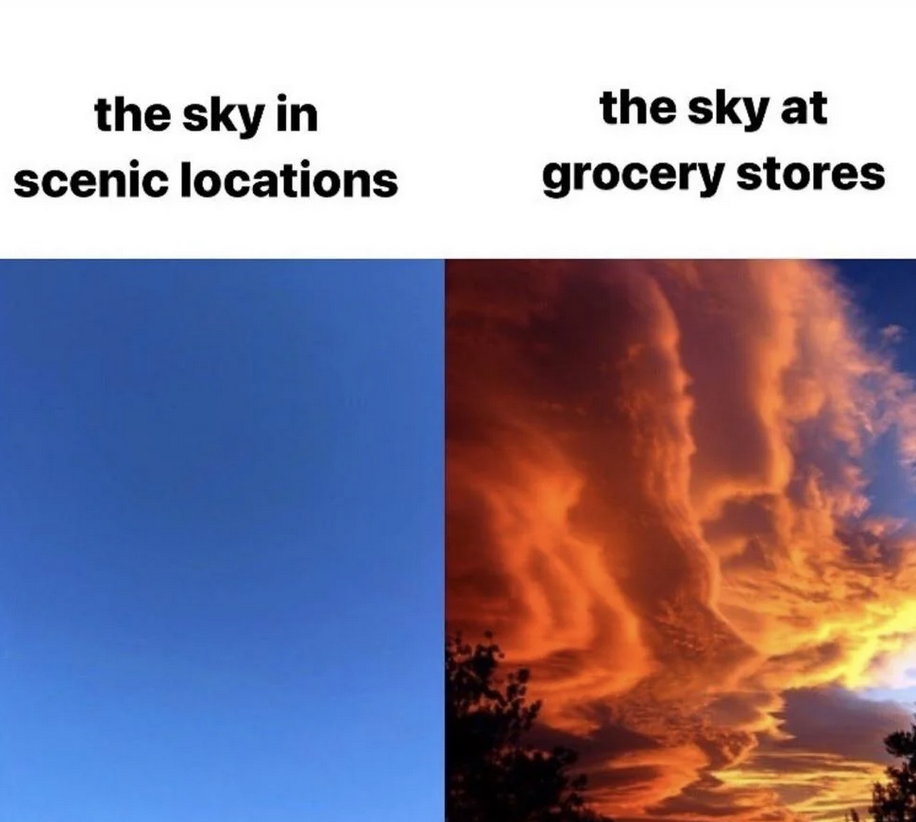
I linger so long that I’m late to the test. Okay, I’m not late. I’m two minutes early, but by German standards, I’m late, the last person to arrive in a room of thirty people. But it’s okay – the front desk man wishes me luck and the proctor smiles when I arrive, and even the test is friendly. It asks about the Bundesrat, the DDR economy, Ostpolitik. All questions I studied well. I don’t want to jinx it, but I think I did okay.
But once I turn in the test and head back to Berlin, another question creeps in: Who cares? Scoring well on a multiple choice test about German history doesn’t make me belong. The sun has set, and all I’m left with is uncertainty. Questions like, what happens now? Who am I am? What am I doing with my life? Where is my home? Who will be there for me? They’re persistent, and I don’t have neat answers or even messy ones.
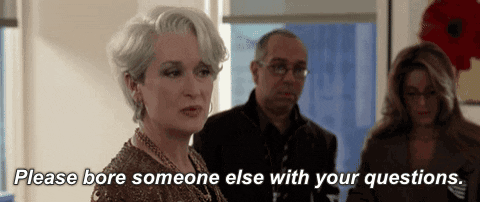
And maybe that’s okay. Because having these kinds of questions isn’t really that special. Everybody feels alone with their questions sometimes. I think about what Rainer Maria Rilke wrote to a teenage poet who wanted some advice on navigating uncertainty and existential dread. “Be patient toward all that is unsolved in your heart and try to love the questions themselves,” Rilke told the young man. “Do not now seek the answers, which cannot be given you because you would not be able to live them. And the point is, to live everything. Live the questions now. Perhaps you will then gradually, without noticing it, live along some distant day into the answer.”
But what does it mean to live the questions? And how am I supposed to love a question like, What the hell is my purpose? or Will I ever have my own family? We live in a culture that pushes us to have answers, but we’re not Scantron tests or a fill in the choice bubbles. Still, people will try to make you into one on job interviews and in relationships. Some like to wet their thumbs and hand out tests at parties, family dinners, the most inappropriate settings. And maybe they do it because it makes them feel better about the tests they're facing in their own lives. I don’t mind tests, but I try to remember there’s rarely one right answer. Sometimes I’m challah bread, sometimes I’m naan. And often, the questions are more interesting than the answers they yield.

Over the last few weeks, I’ve been reading The Artist Way (again) because of course. It’s a book full of questions designed to inspire curiosity and creativity. These questions aren’t the daunting ones that met me on the train and followed me home. They’re the kind that seem small at first. Questions like, what was your favorite childhood snack? What do you secretly enjoy reading? What silly thing would you like to try once? What would you do if you could let yourself lighten up a little bit? But in all of these questions I see the red thread of a deeper question, which is What makes you come alive? I think this question is also an answer to why so many people struggle to get through the book (I’ve only managed to read it once). Because being fully alive is terrifying. It means being painfully present. Like a sunset, aliveness doesn’t promise an answer. And once you step into being alive, you can never be sure comes next.
But I think this is what Rilke was getting at when he talked about having the courage to live the question rather than being desperate for the answers. You don’t have to pass the test. You don’t even have to know what the test is. The important thing is to keep showing up, keep being curious. To trust that the questions will guide the way.
Which sounds great until life gets challenging. Being honest with ourselves isn’t easy. There’s always a question, at least one, we’re scared to answer. For me, one big scary question isn’t actually, what if I don’t belong here? but rather what if I don’t even want to belong here? That’s scary because I’ve spent so many years building my life in Berlin. I’ve been so committed to being accepted that I haven’t considered if I want to belong.
Maybe I’ll find out that this is the place for me. Maybe the questions will guide me into a life that I’ll only be able to live once I follow them. And if a certain place, job, relationship is the right one, it’s still worth being courageous enough to ask, but what if it’s not? Because that question will either lead you home or take you somewhere new.
When I’ve asked myself, what if I don’t even want to belong here? I’ve started to think more about what it means to belong somewhere and how I’ll know when I’ve found it. I’ve started to think that maybe belonging isn’t something I need to find in one single place. That maybe I can’t belong anywhere unless I belong more fully to myself. Maybe, for now, I can focus on being my own mobile home, made of spirit and bones, moving through the world, living the questions, even when I don’t know the answers.
